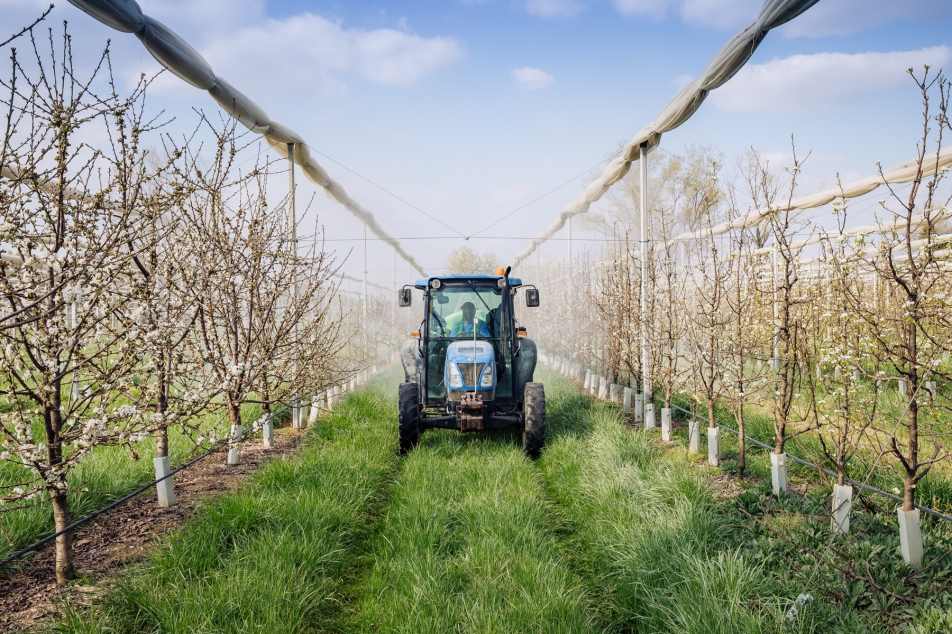FOOD
Italy covers just 0.5% of the planet's surface area, and yet it boasts the greatest number of edible plant species. The country’s biodiversity is unique, and its economy is based, to a large extent, on the farming industry.
In the early months of 2020, the pandemic has hit this sector very hard and, with the closure of restaurants, canteens and bars, its economic and commercial equilibrium has been turned upside down.
Many small-medium sized agriculture-based companies, which usually supply the catering sector with quality produce, have suffered a huge drop in revenues, more than 50% in many cases.
On the other hand, the larger producers which supply the retail sector have had to deal with an extraordinary increase in demand from supermarkets besieged by Italian families forced to live in lockdown at home.
The virtually complete closure of the mechanical engineering and building sectors made it very difficult to find spare parts for machinery and the materials necessary to maintain farm buildings. Seasonal workers from abroad have been stuck in their respective countries due to the border closures.
And yet, despite all these difficulties, the farmers and farm labourers – many of whom are migrants – have continued to work hard and gear up for the future. Never before that period had the Italian population been so aware of the work and sacrifice that enables products to find their way to supermarket shelves. And if those products remained constantly available, enabling people to feed themselves and charities to continue distributing food to those who already had problems before the emergency, it was thanks to a food supply chain that never stopped working, not even for a single day.
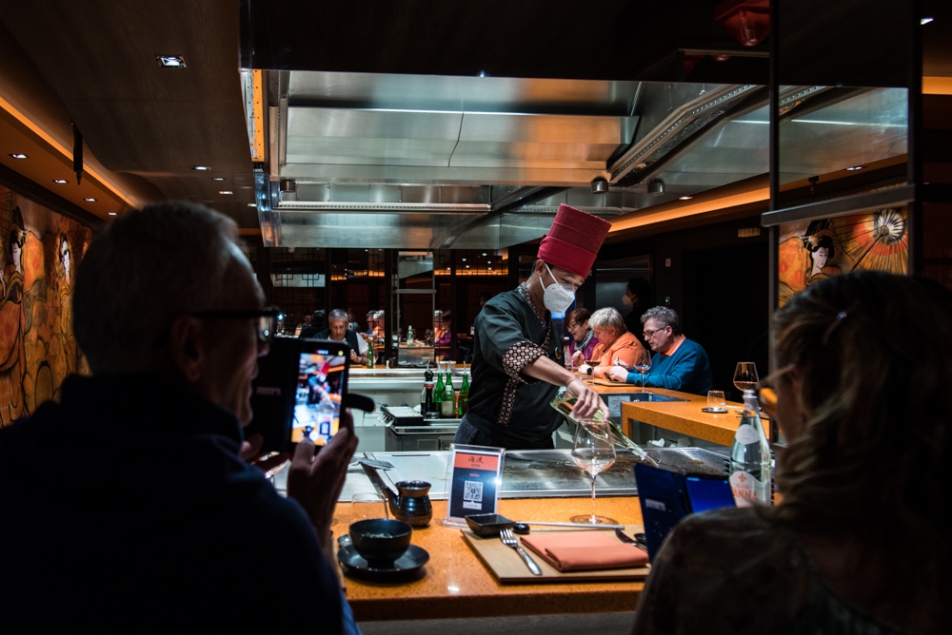
The Japanese restaurant on the MSC Grandiosa cruise ship. In the summer of 2020, the Grandiosa was for some time the only cruise ship to sail in the Mediterranean. And for many people, it was a way to escape the lockdown.
Meal packs for a celebratory lunch that volunteers from ACLI (Christian Association of Italian Workers) from Boltiere in the province of Bergamo are delivering on the religious feast day of the Epiphany.
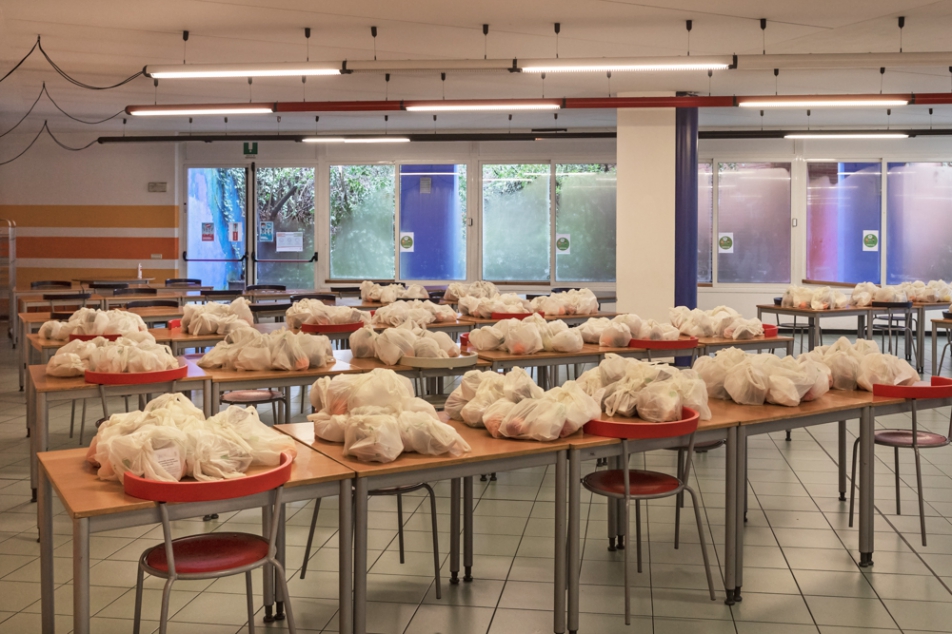
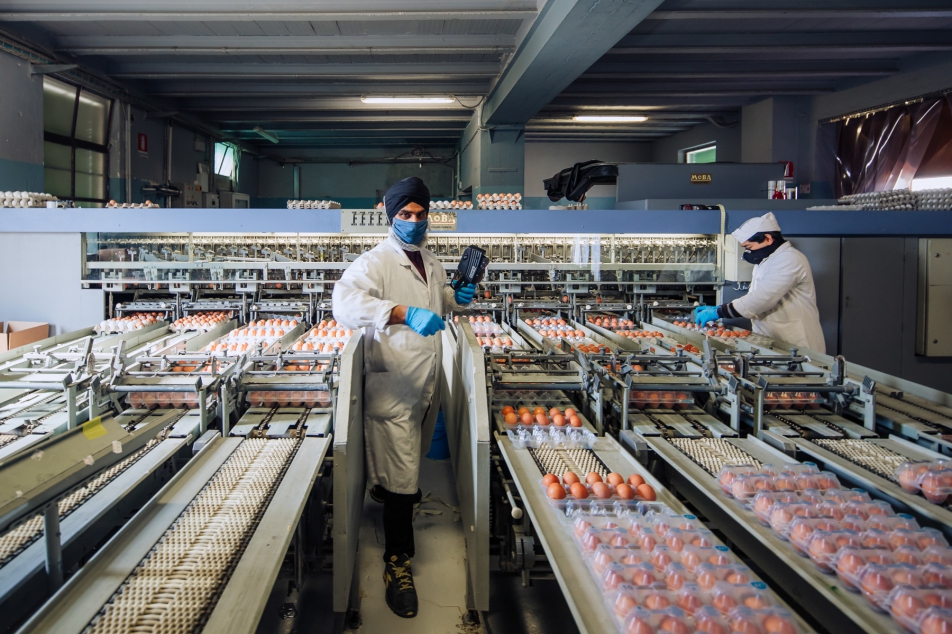
Packing eggs at the Scotti farm in Mediglia, near Milan. Although the agri-food sector has been heavily affected by the lockdown, it has never stopped working, thereby guaranteeing the supply of products.
The Scotti farm in Mediglia (near Milan). Immigrants from North Africa, who are regularly hired as farm hands, at work in the greenhouses where tomatoes are grown. The immigrants are placed with the farm by an NGO that follows reception and integration.
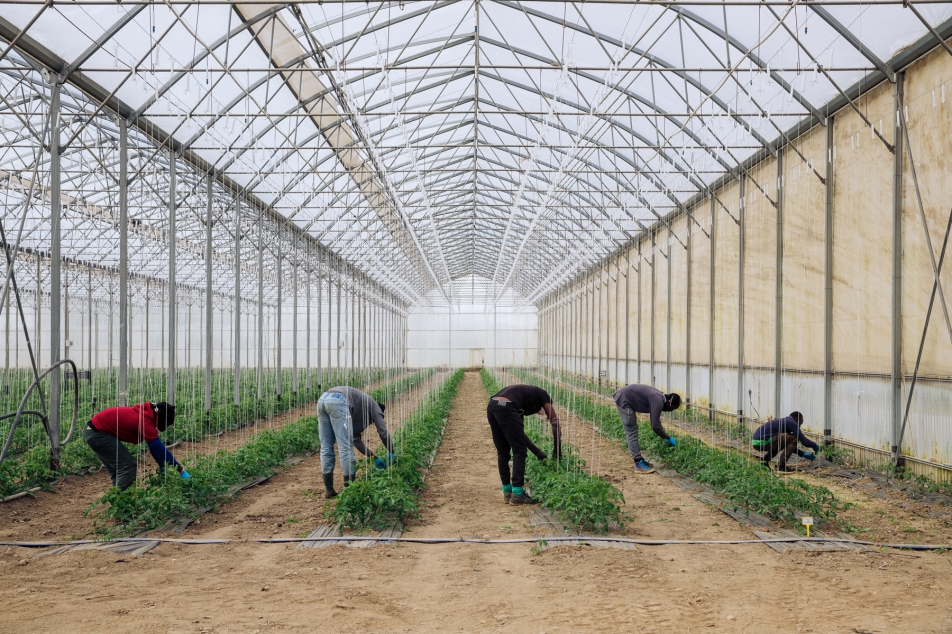
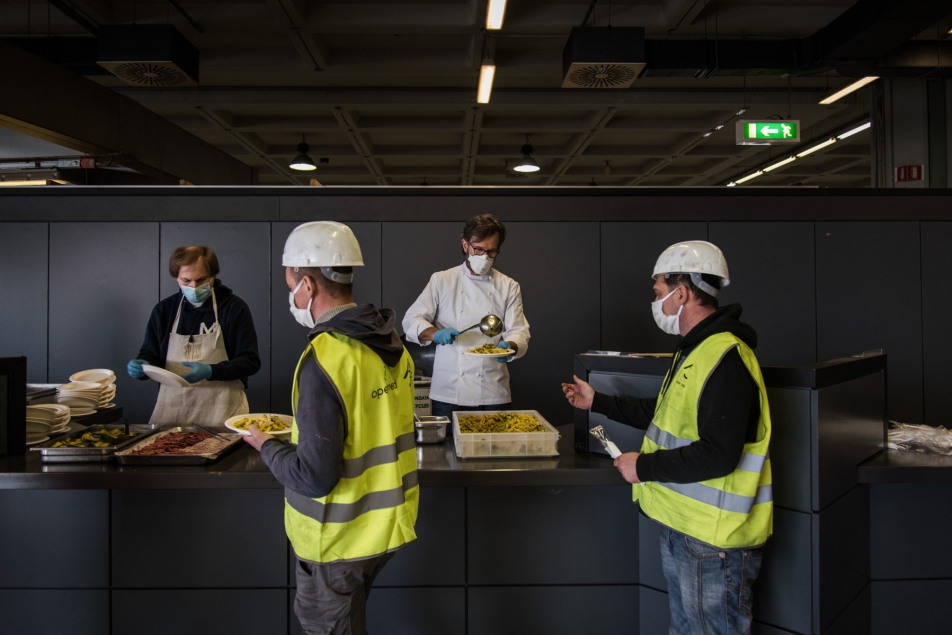
Milan. Famous Italian chef Carlo Cracco serves lunch to the workers in the trade fair area, the exhibition centre where the new hospital coordinated by the Lombardy Region is being built.
Egg-laying hens in the henhouse at the Scotti farm in Mediglia (near Milan).
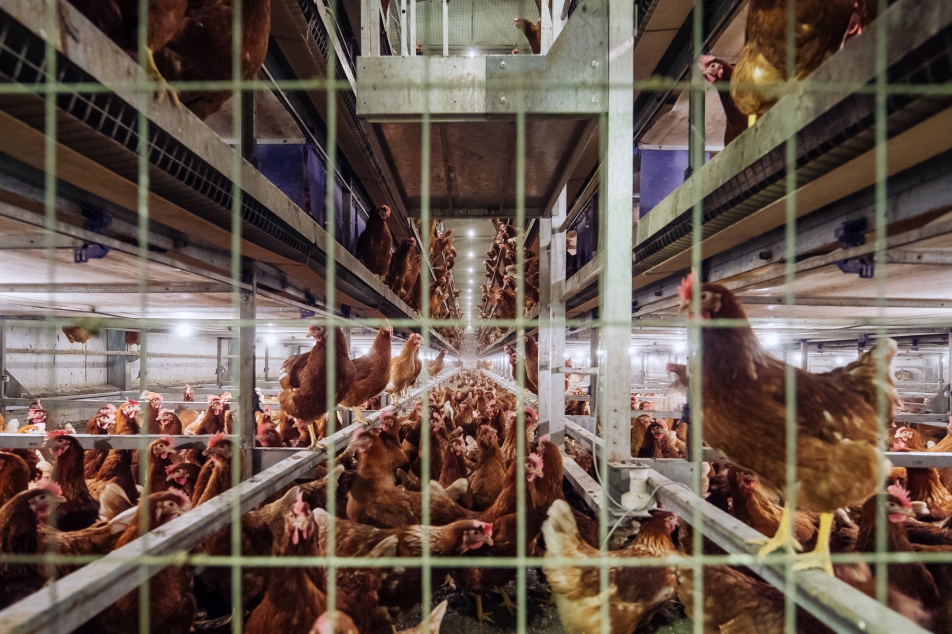
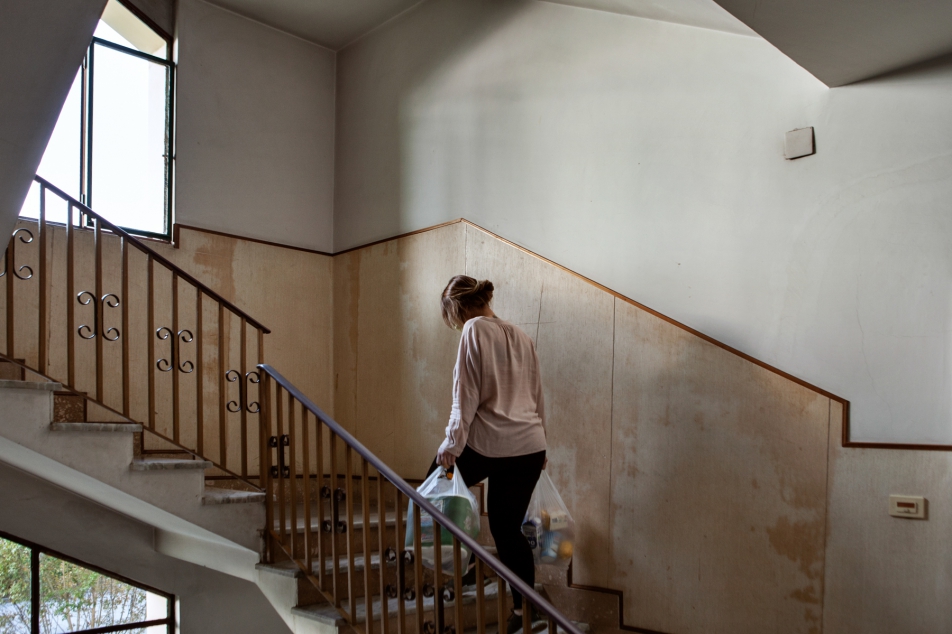
Teresa works in a supermarket in San Cipriano Picentino (near Salerno), and for security reasons has moved her young daughters to a different house. Coming home from work is the hardest part of her day, because she feels the emptiness of the house every time.
Since the Middle Ages the town of San Daniele in Friuli has been famous for its ham. Master ham makers at the Dell'Ava company process fresh pork legs by applying salt for seasoning.
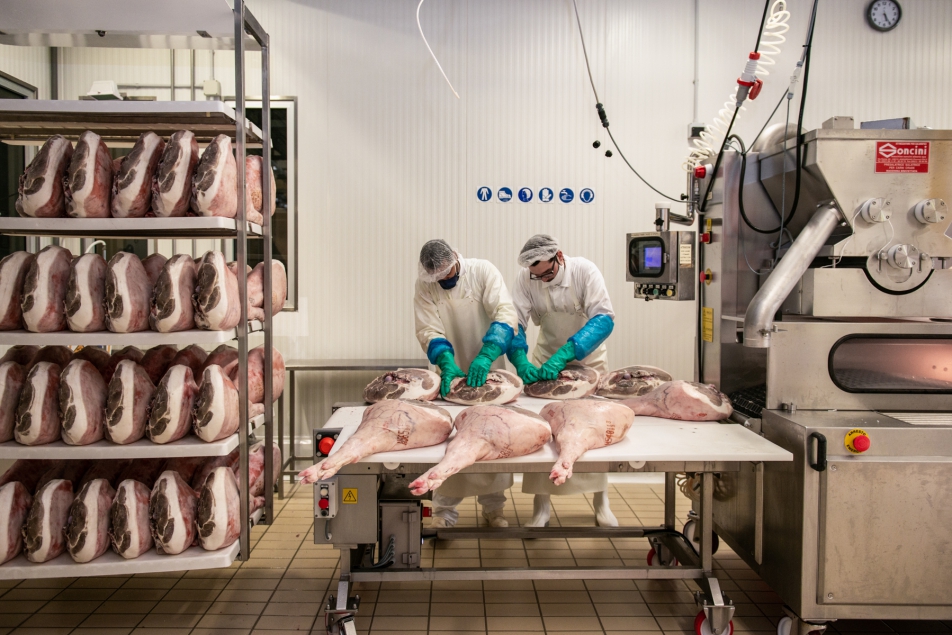
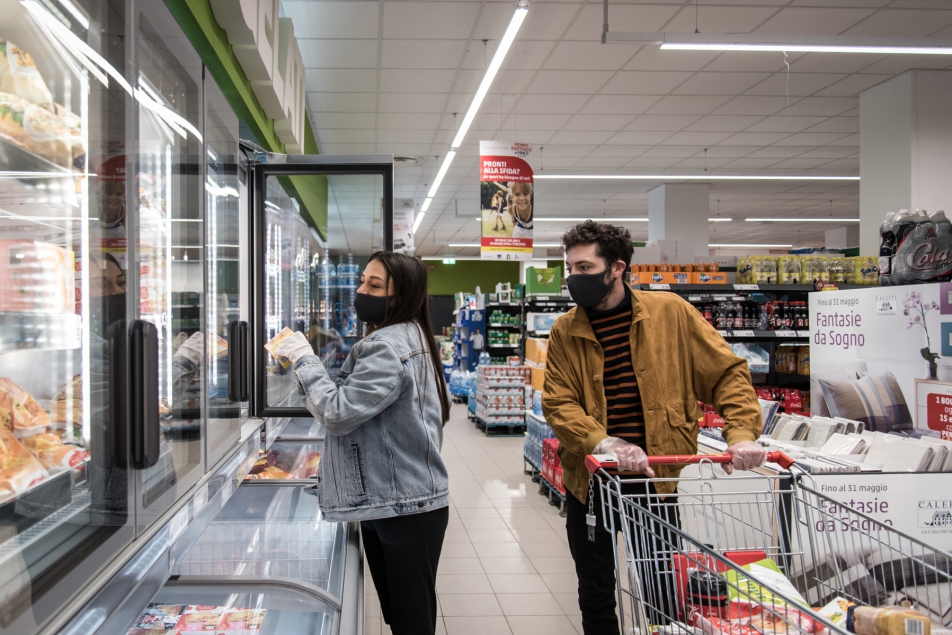
Milan, Ilaria Granata, a bartender who is seven months pregnant, does the shopping at the supermarket together with her partner Luca Maccagnani, a project manager.
In the Di Lenardo cellars in Friuli the transfer of wine is being prepared. All processes are carried out in compliance with the new safety regulations.
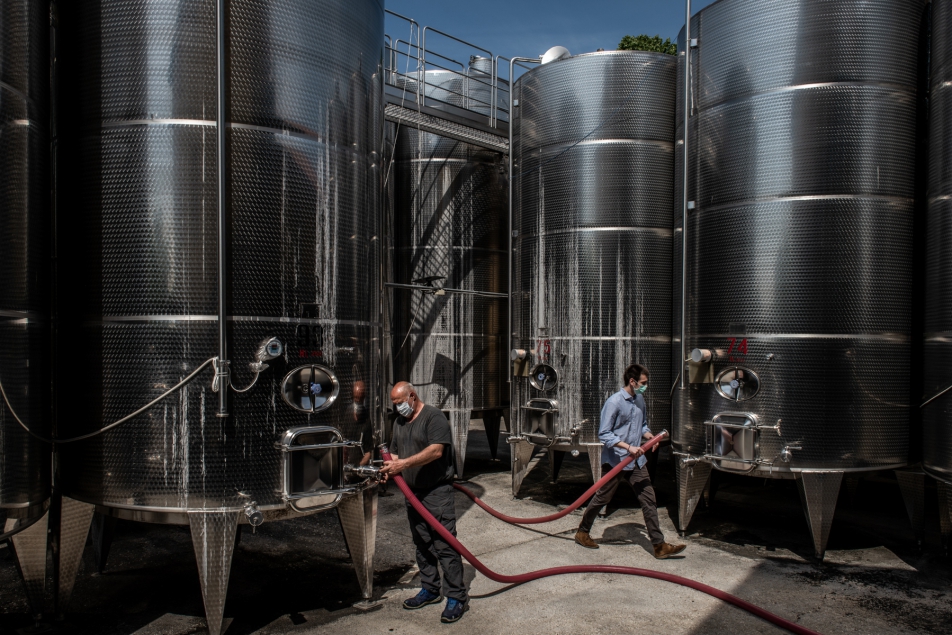
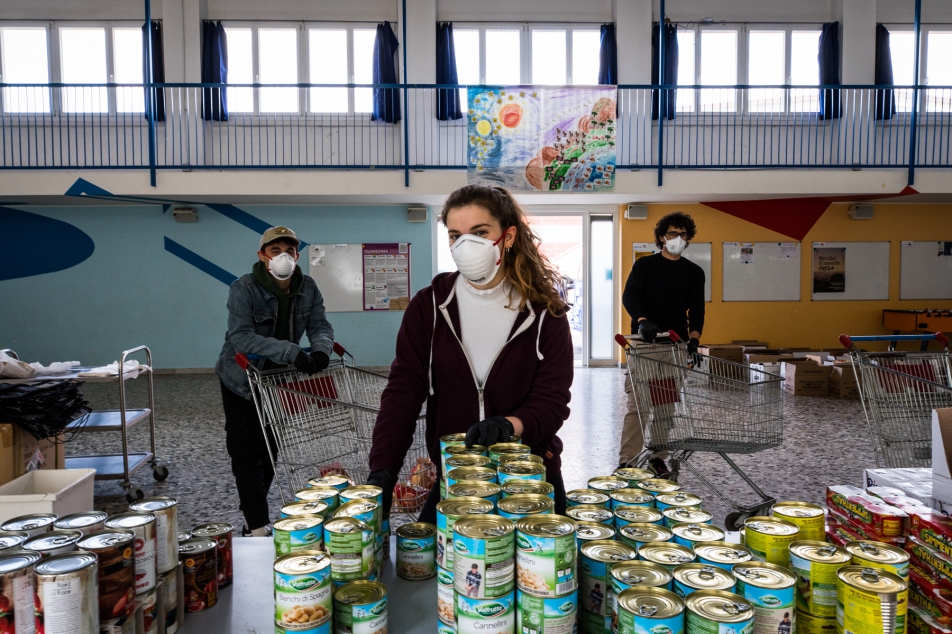
Young volunteers Camilla, Simone and Giorgio preparing food parcels for needy families at the church hall in Bresso, near Milan.
On March 18th, the Winter Garden, a four-star hotel just a stone’s throw from Bergamo airport, made its facilities available to Covid-19 patients who have been discharged from hospital, but who still tested positive. They need to wait before going home so as to be absolutely certain of not posing a risk to their families. Breakfast portions in the restaurant area, ready for delivery to patients.
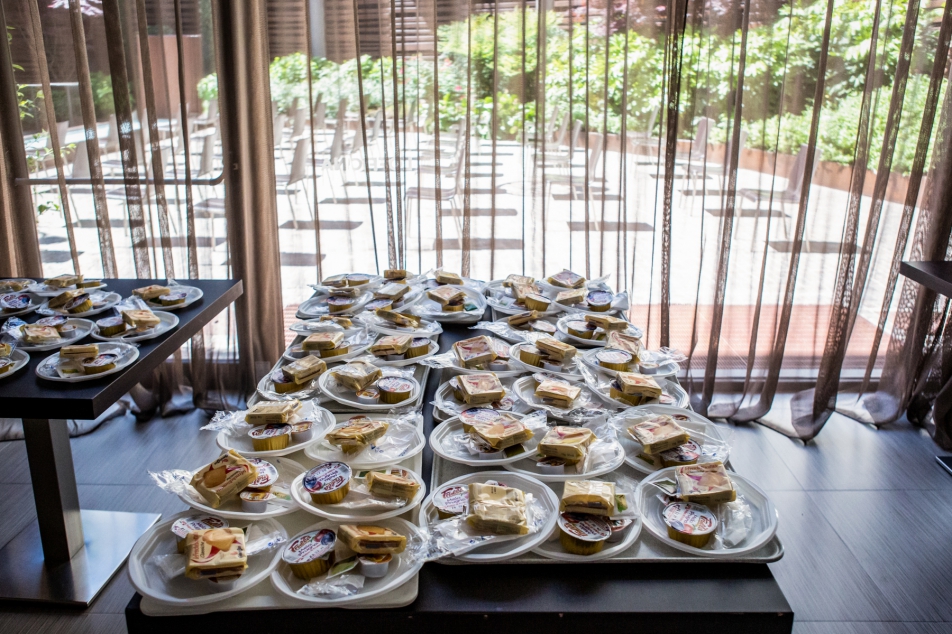
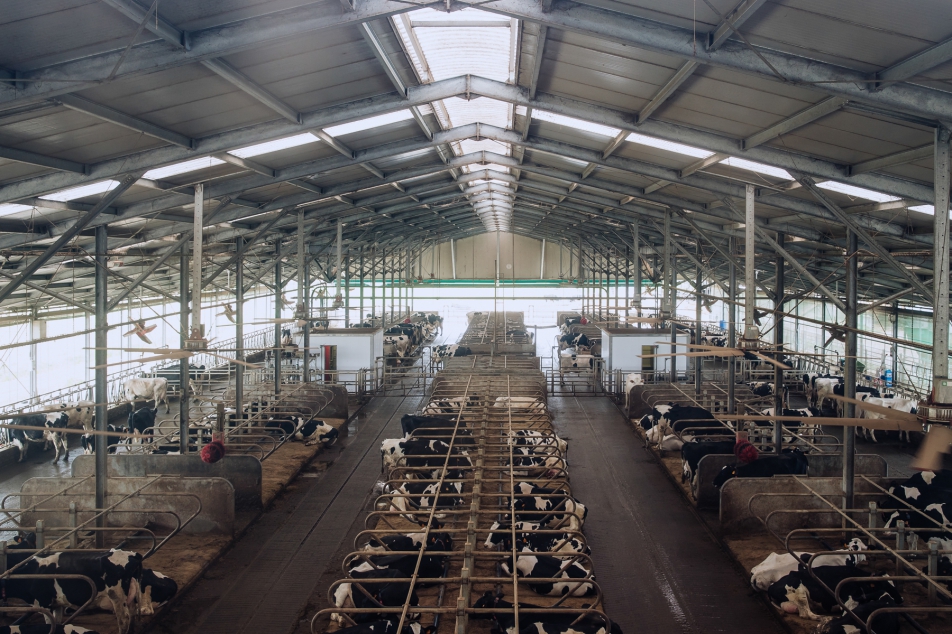
Vanzetti Holstein. The new cow shed at the Vanzetti Holstein farm in Piedmont. Every day around 240 Friesian cows are milked.
Staff at the Gelmetti fish shop in Milan during the lockdown.
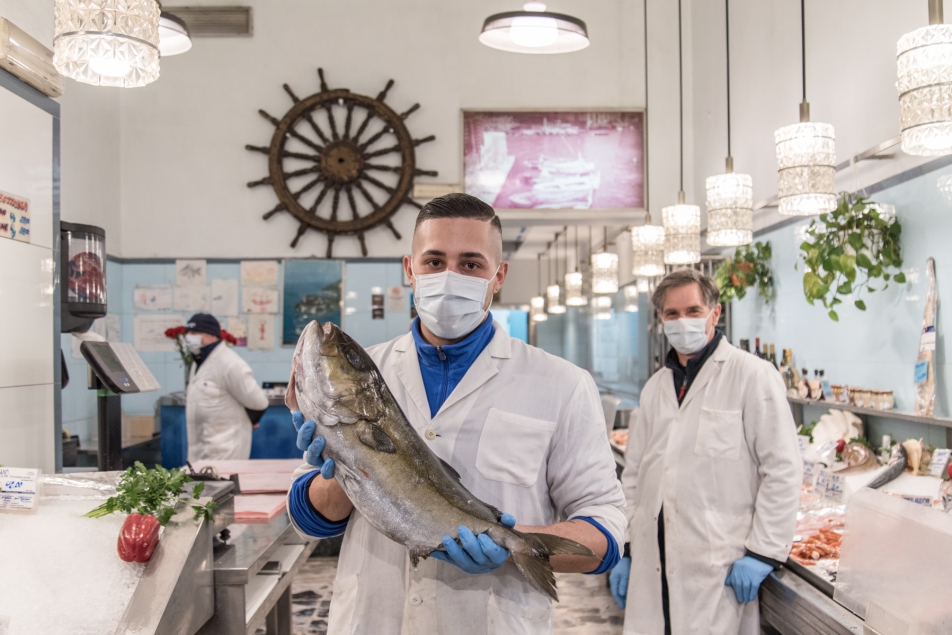
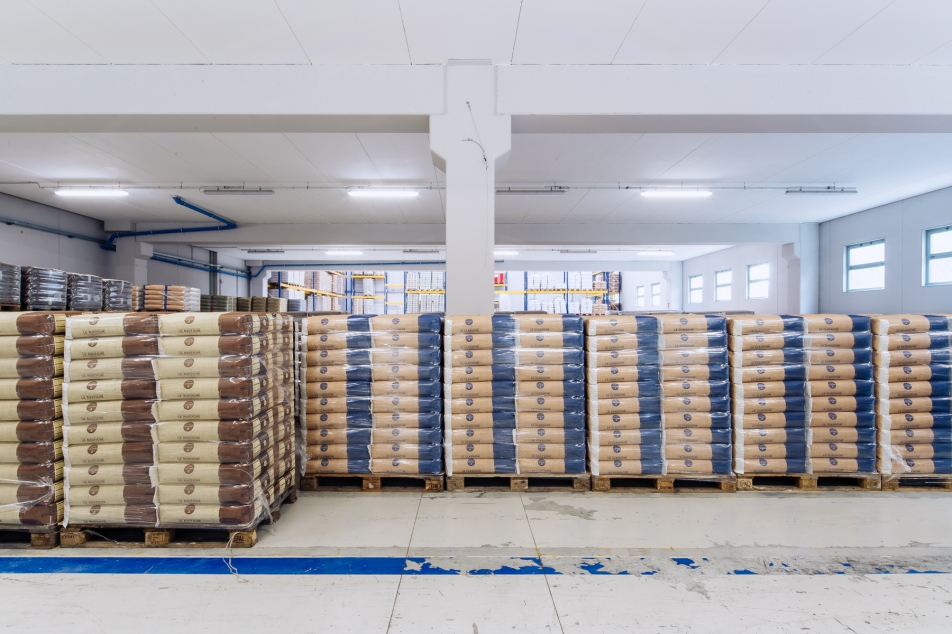
The storeroom of flour producer Molino Colombo in Paderno D’Adda, near Lecco. Following the shutdown of the restaurant sector, the company’s revenue has halved, in spite of the fact that sales of flour have increased by 185%.
Sernio, near Sondrio, is one of the so-called “zero Covid” villages, where not a single case of infection has been recorded. Domenica Sala, a 61-year-old farmer, digs the ground for planting vegetables.
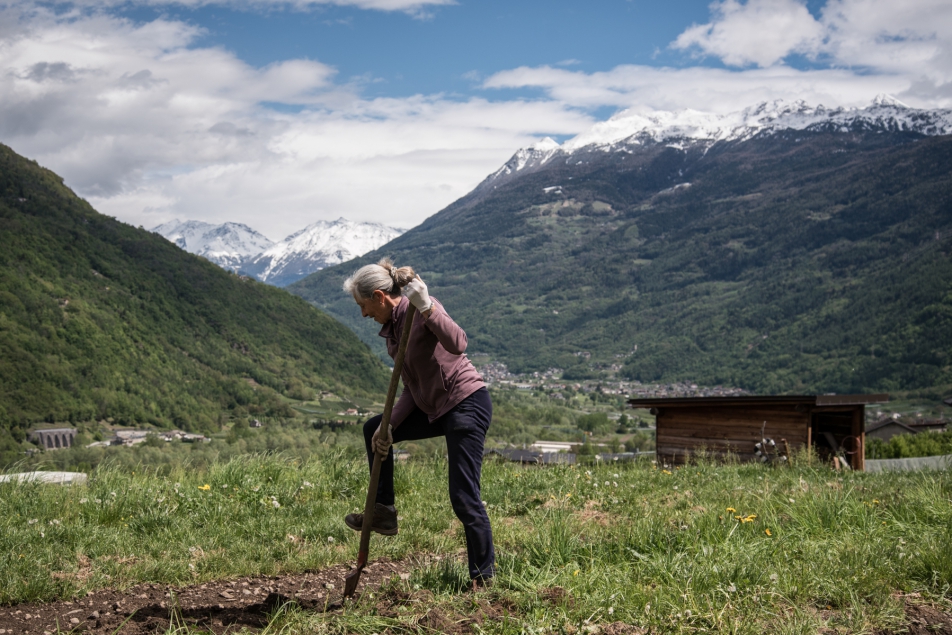
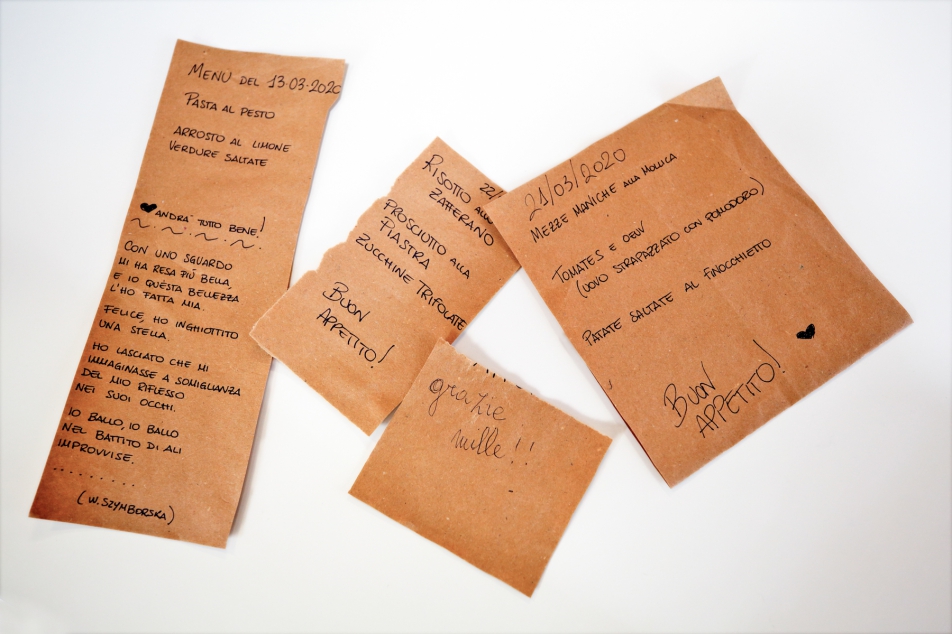
The menu and some poems that are delivered along with the meals prepared by volunteers in Osnago (near Monza) for people in lockdown.
Cirenaica farm in Cuggiono (near Milan). Sandro Passerini in the drying room used for cured meats. With the restaurant sector shut down, the farm is focusing on supplying rest homes, direct sales through the farm shop, online sales and supplying ethical purchasing groups.
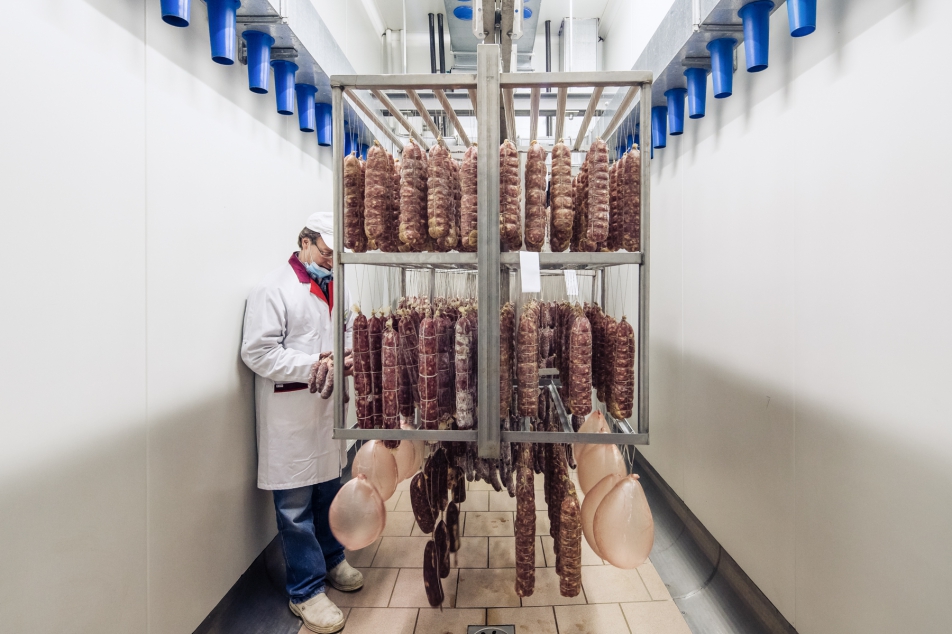
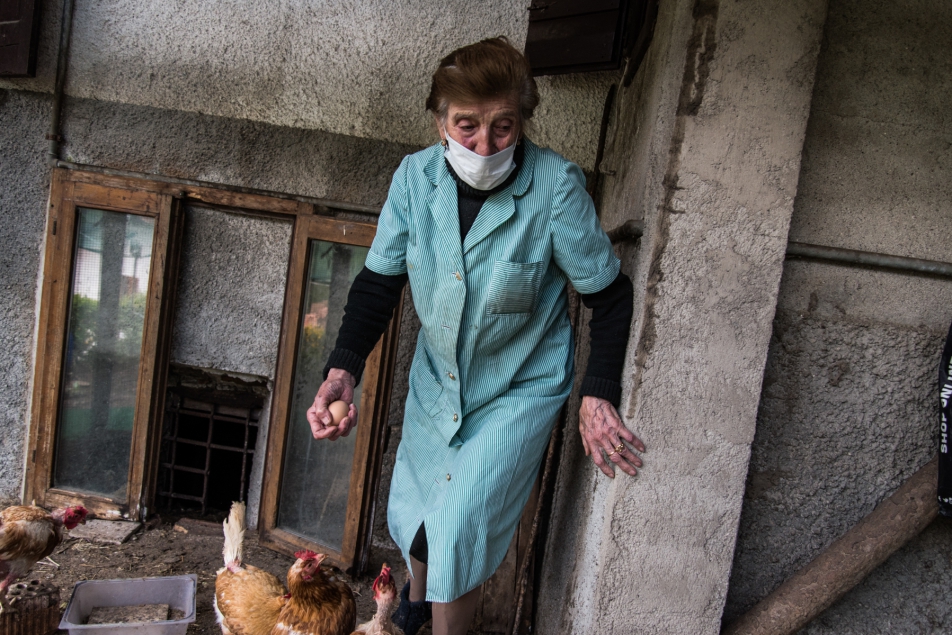
Magasa, near Brescia, is one of the so-called “zero Covid” villages, where not a single case of infection has been recorded. Rosetta Gottardi, aged 92, was once a farmer. “I had a blood test for the very first time two years ago. Everything was alright”, she says.
Piedmont, Italy. On the farm run by Riso Rizzotti, Luca Rizzotti helps his father Fabrizio prepare the fertiliser for the soil where rice will be sowed.
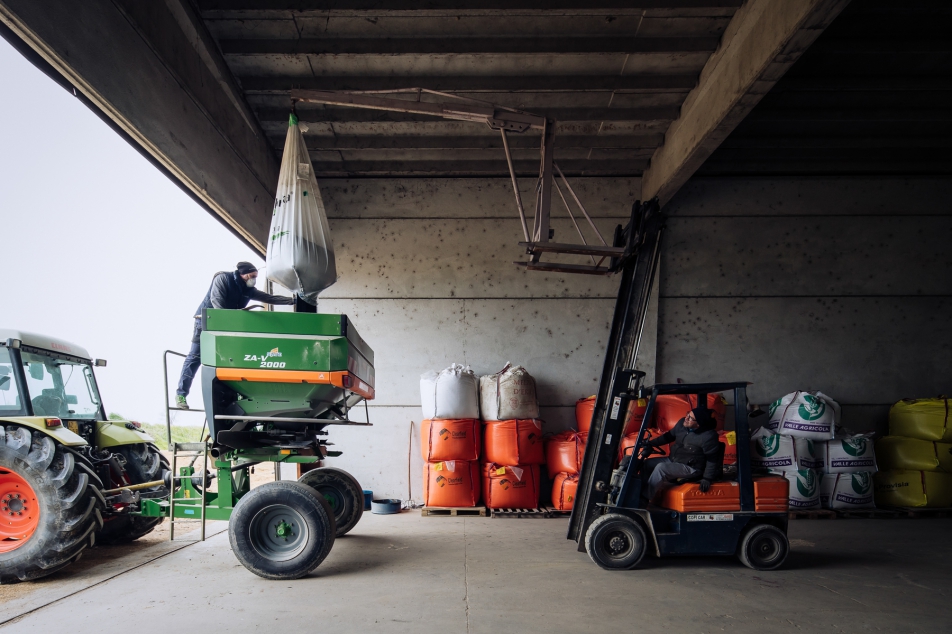
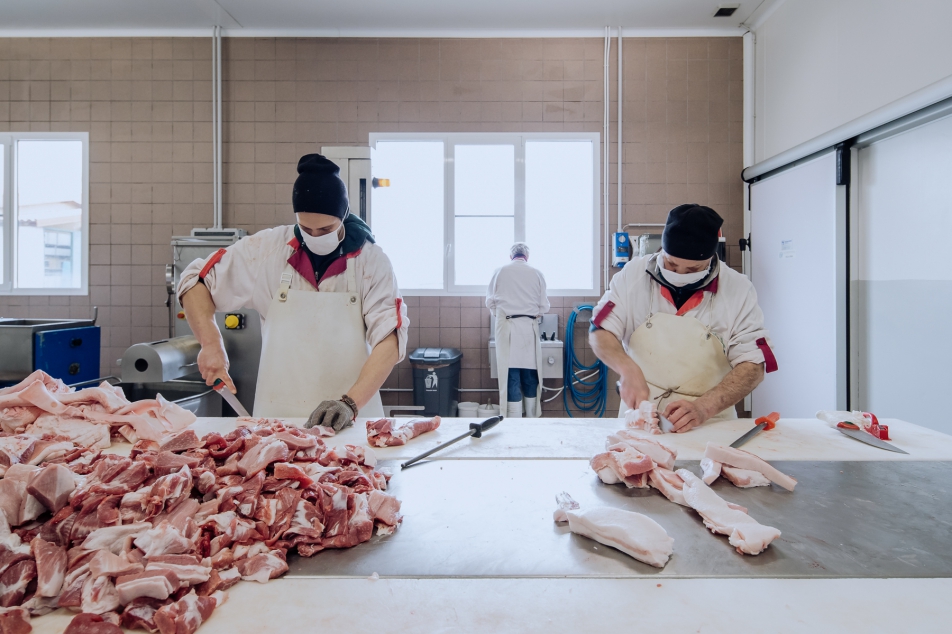
Cirenaica farm in Cuggiono (near Milan). The salami production has three full-time staff and one part-time assistant. All four of them have worked full time during the emergency.
Laura Morelli shops in a Milan supermarket. Morelli, 60, alternates between her job as a rider and her role as a contract professor at the Suor Orsola Benincasa University in Naples.
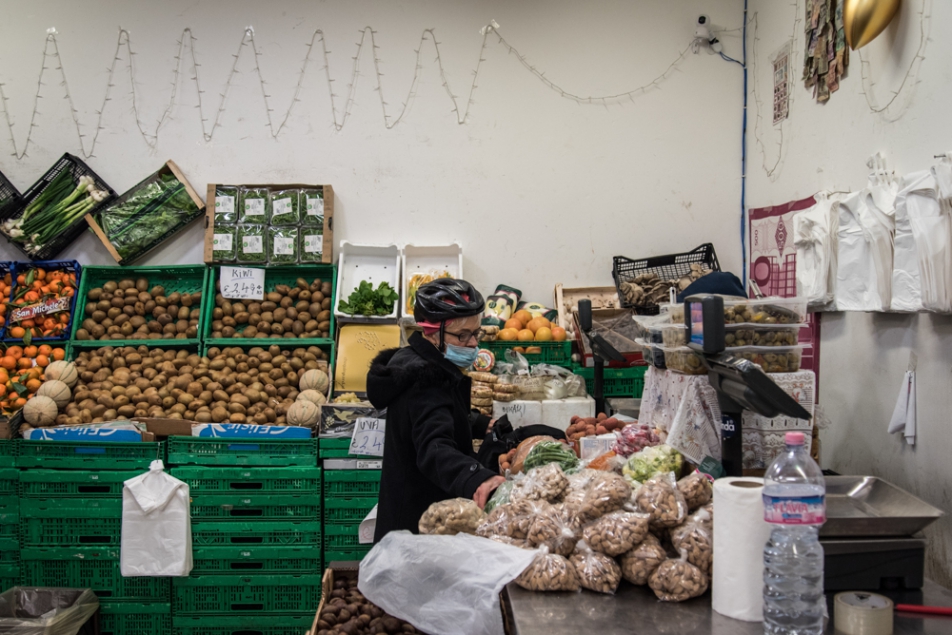
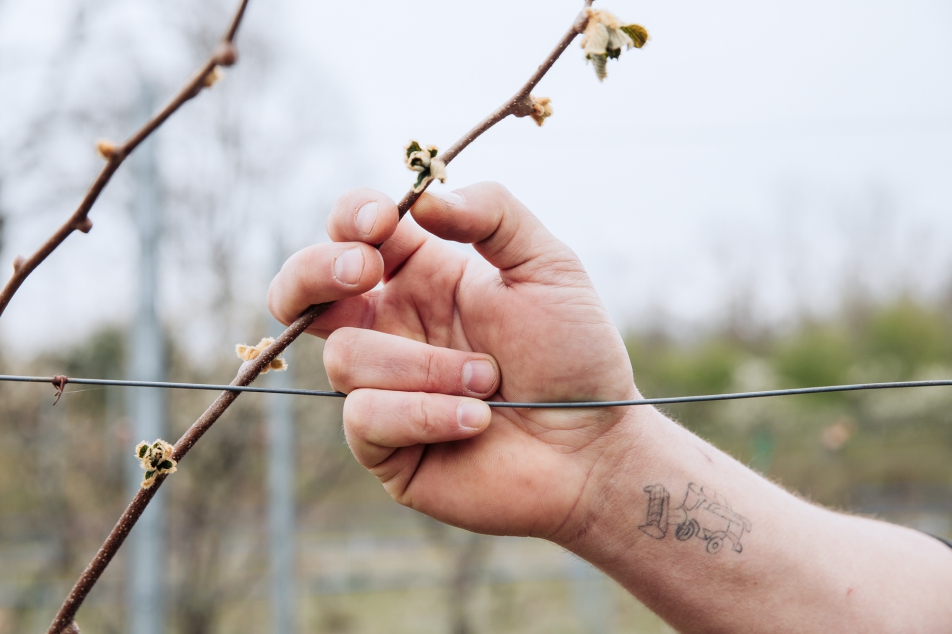
I Dossi farm, near Pavia. “Farmers do this job because they like it, it’s a passion”, says founder Cesare Mariano Bazzano as he describes the hard work in the fields.
Sergio Scotti, owner of the Scotti farm in Mediglia (near Milan) together with his cousin Giorgio, in a greenhouse where lettuce is grown. The farm is 180 hectares, of which at least ten hectares are covered with greenhouses.
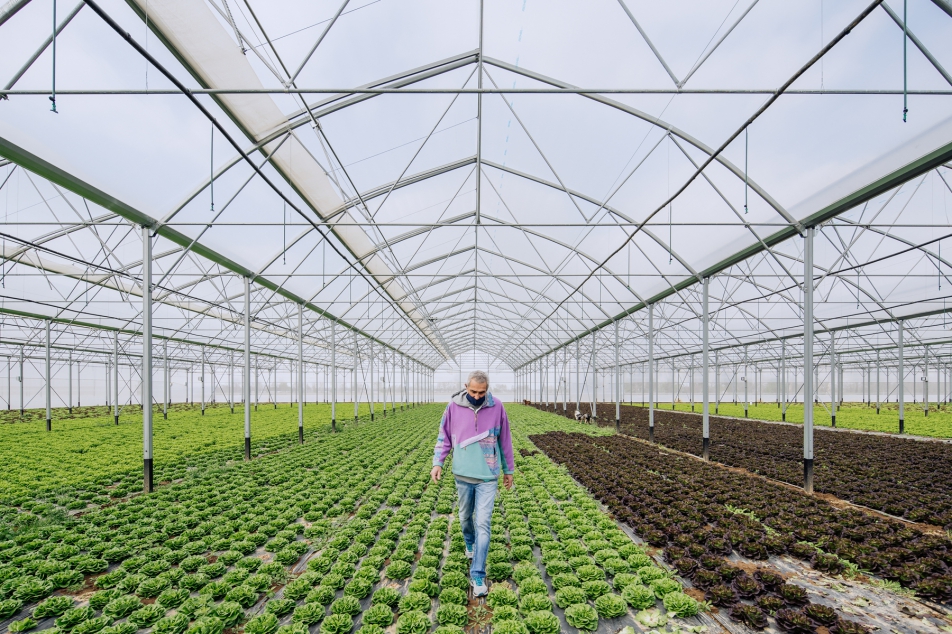
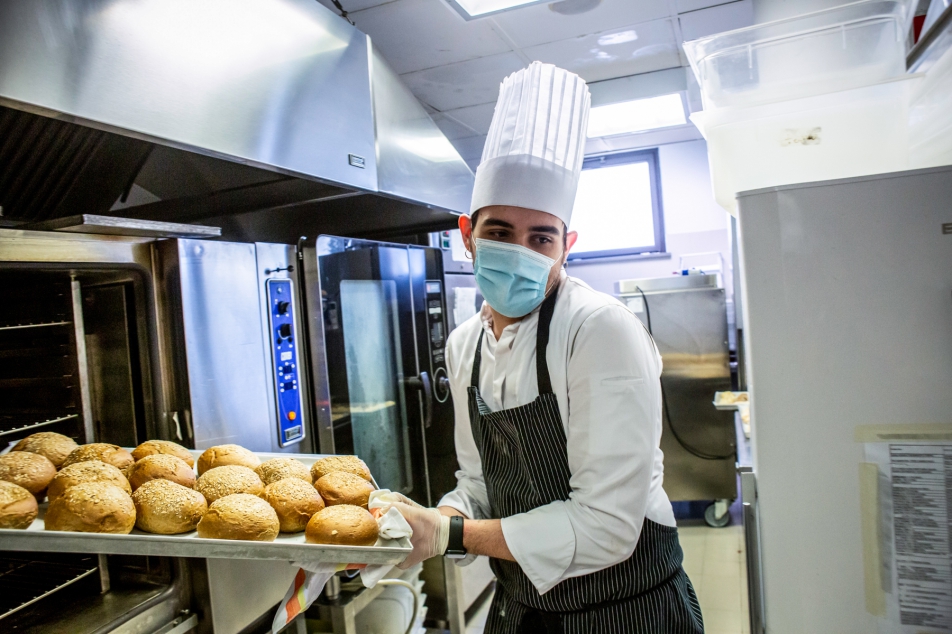
Winter Garden Hotel, Bergamo. A cook in the kitchen bakes bread for the patients.
The Cirenaica farm (Cuggiono, near Milan) owns around 20 cows of the ancient Varzese breed and collaborates with the La Forestina farm in raising a further 20 animals.
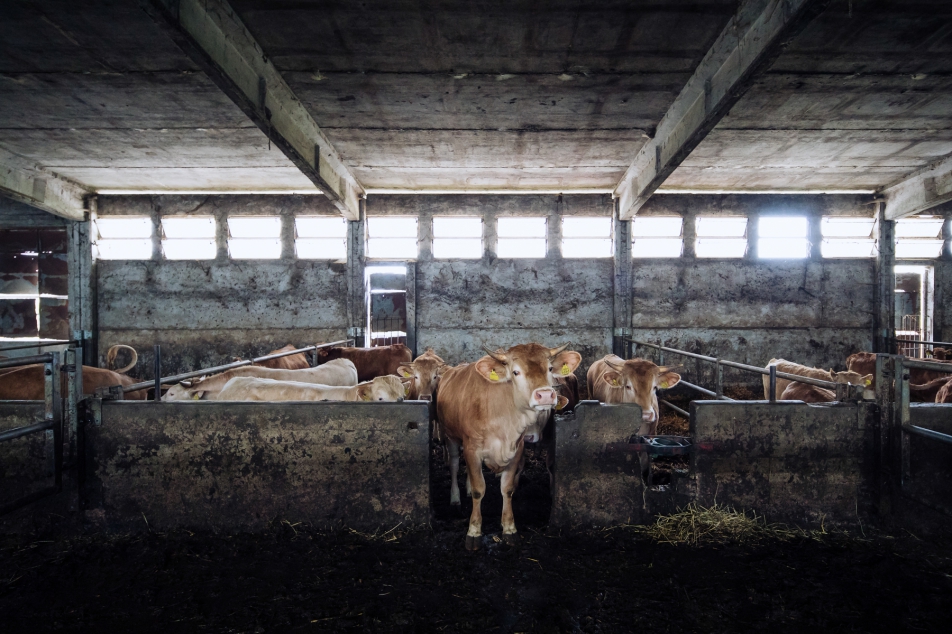
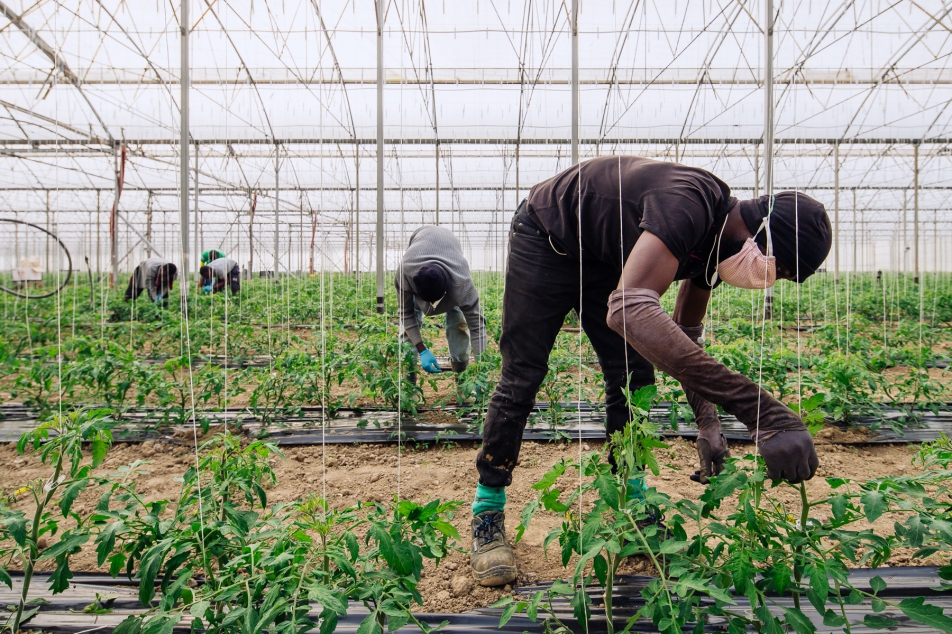
At the Scotti farm (Mediglia, near Milan), tomato plants are positioned to encourage their vertical growth. Growing many fruits and vegetables requires manual work that cannot yet be replaced by technology.
Harinder Pal, from Punjab in India, has been working on a dairy farm in the province of Crema in Lombardy for the last three years. For Harinder there is no such thing as weekends, holidays or pandemics that can interrupt his work. The cows need to be milked 365 days a year.
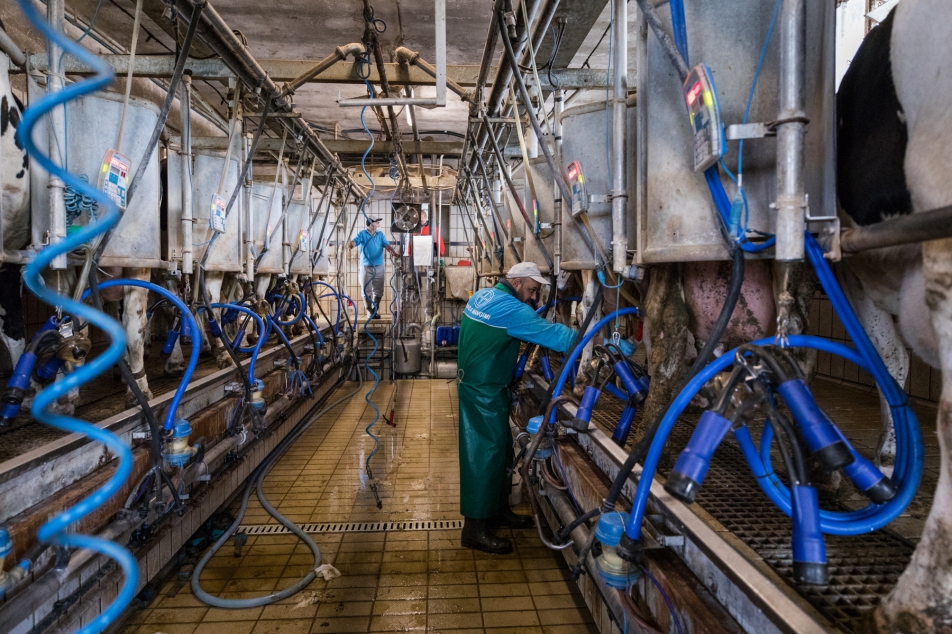
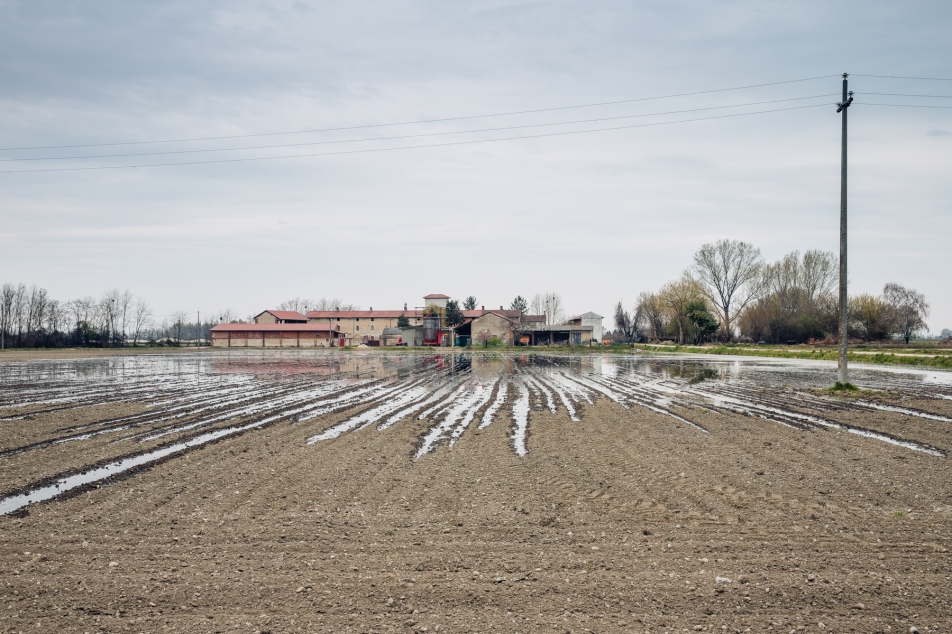
The fields in Piedmont’s Novara area are deserted at the end of the day’s work. When the tractors stop, you can go for miles without encountering anyone.
Annibale is a master baker, and even during the lockdown he has worked 12 hours a day at his family’s bakery in Nocera Inferiore, near Salerno.
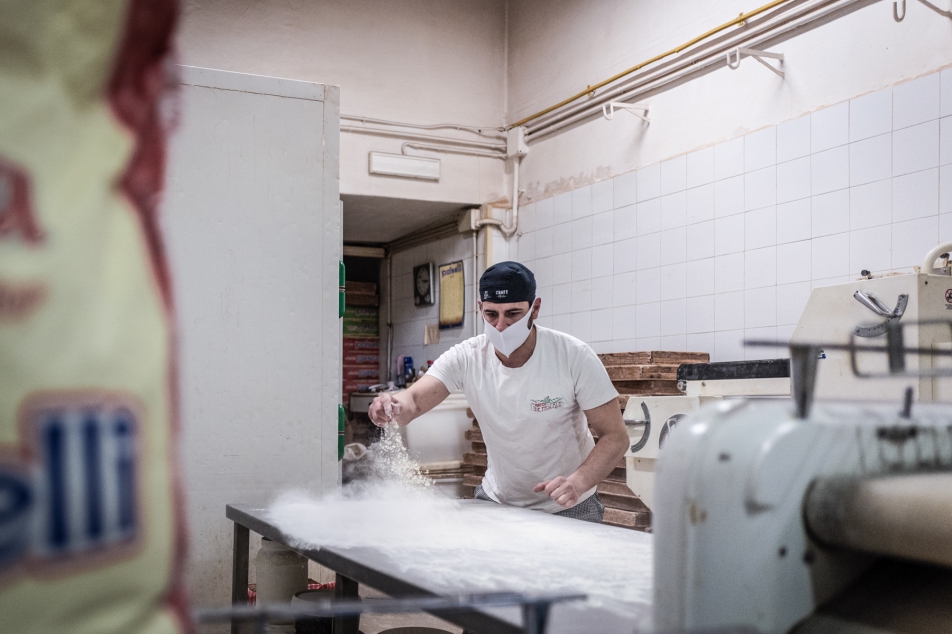
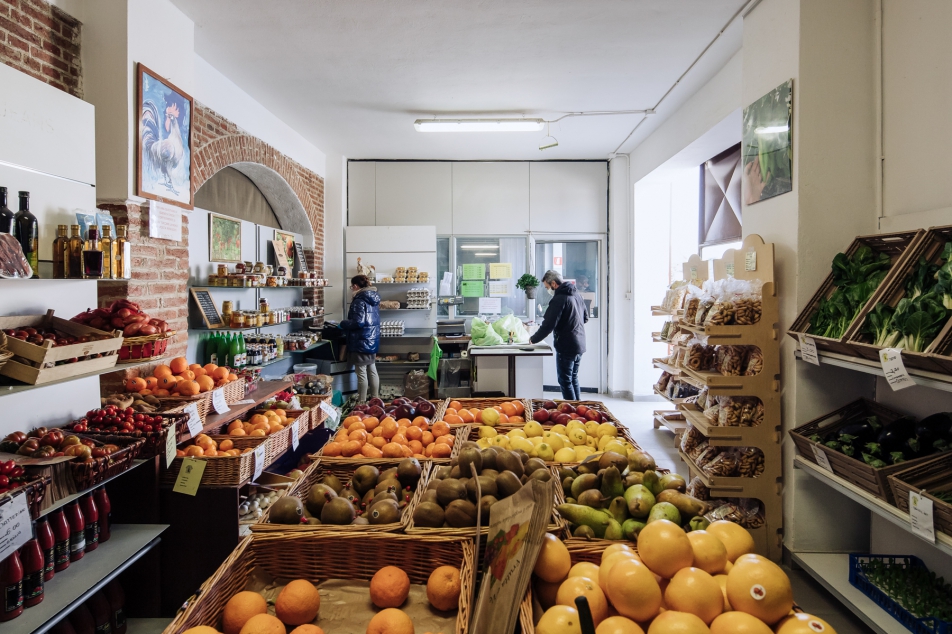
At the Scotti farm’s shop, which is situated in the central courtyard of Cascina Pizzo (Mediglia, near Milan), fresh produce is sold directly in spite of the reduced customer affluence. Precautionary measures are respected, such as the required distance between people and the use of masks and gloves.
Kumar Sandeep, Kulwinder Singh, Arwiner Singh and Dawinder Singh are from Punjab in India. They work for the Galbusera farm in Cernusco Lombardone, near Lecco. The farm also employs two Italian students from the agricultural college. A further six farm employees, who had travelled home to India for the winter, have been unable to return to Italy due to travel restrictions. All the fruit pickers have worked non-stop throughout the lockdown period.
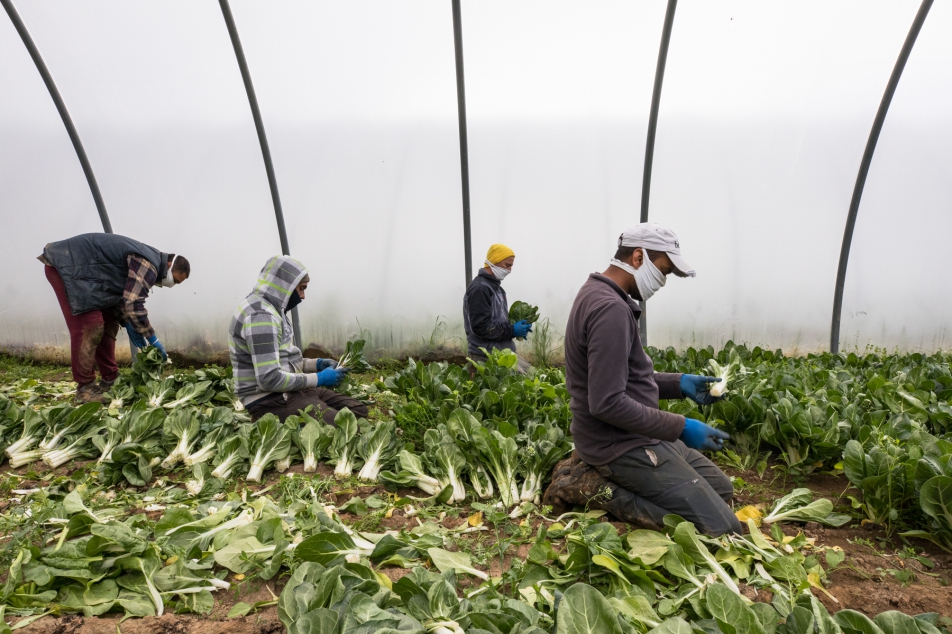
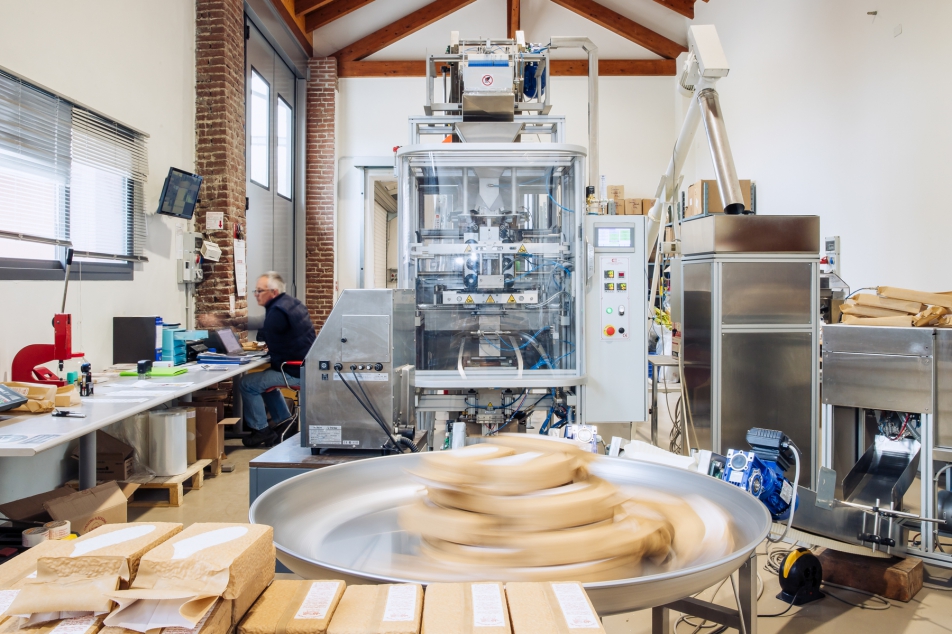
The rice produced by Cascina Alberona, a farm owned by Luigi Ferraris in the province of Pavia, is destined for small and large retail distributors, while some of it will be sold directly in the farm shop or online.
At the Scotti farm (Mediglia, near Milan), a worker of Asian origin drives a tractor along rows of fruit trees. The farm works with agricultural cooperatives from Romania, Poland and India, but many of their workers are blocked in their countries by the closure of national borders: it’s a problem that needs to be solved due to the imminent seasonal harvest.
